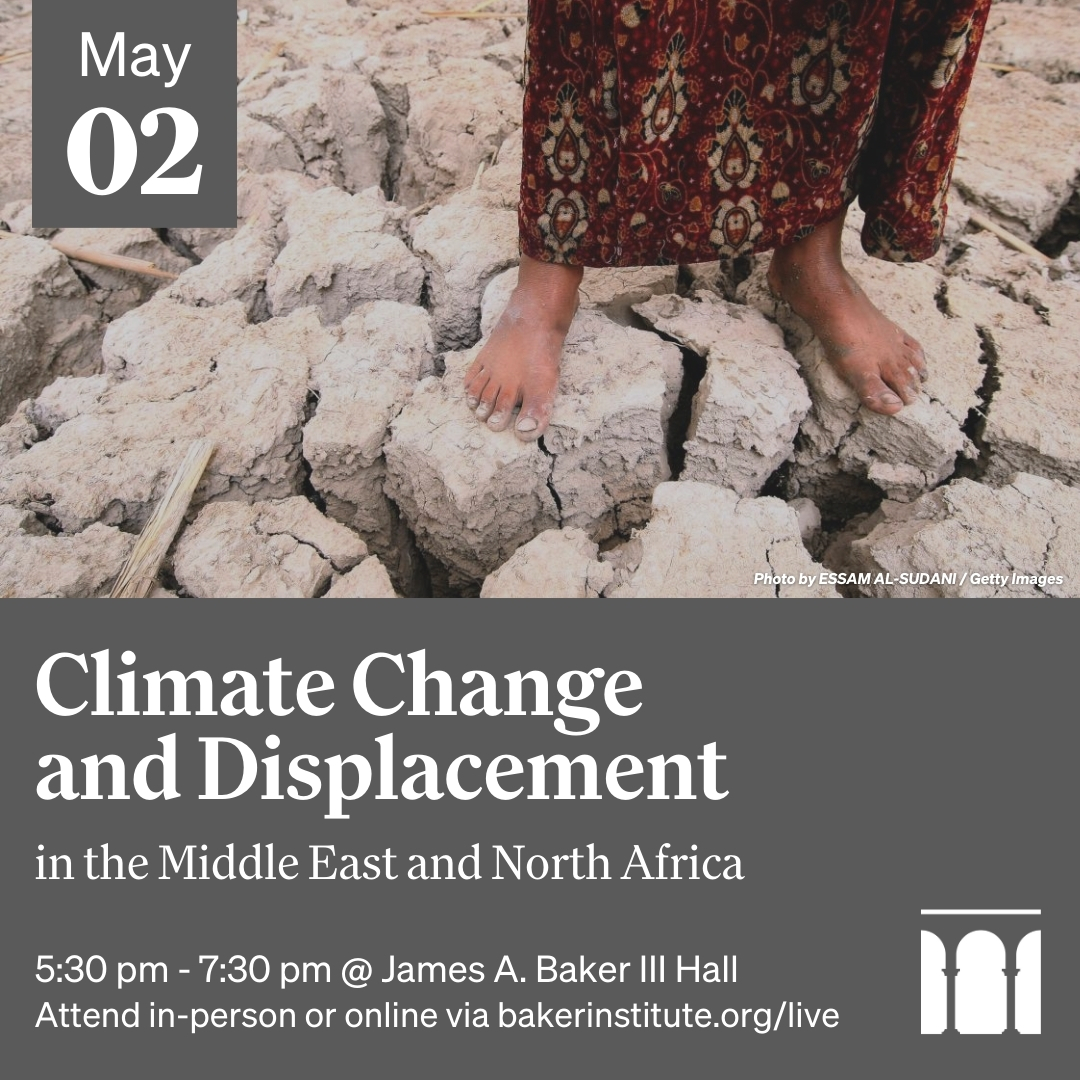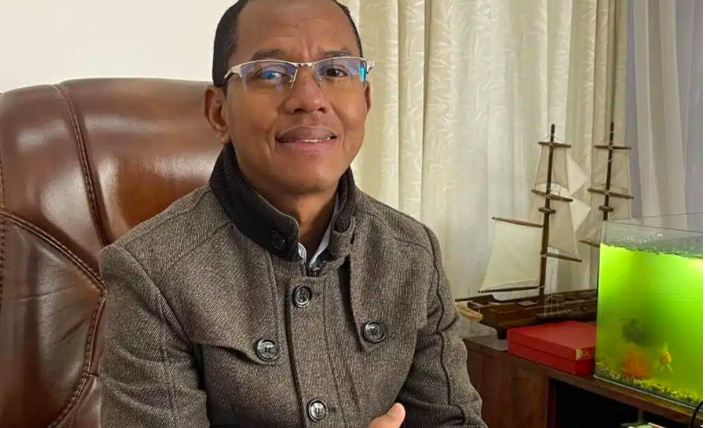Climate change and environmental disasters are increasingly becoming drivers of migration around the world. While some are forced to cross international borders, most people displaced by climate change find refuge within their own countries. By 2050, up to 216 million people could be forced to move within their countries due to the gradual impacts of climate change, such as water scarcity, lower crop productivity, and rising sea levels. The Middle East and North Africa (MENA) region is one of the driest and most water-scarce places in the world, making it particularly vulnerable to the effects of changing climate.
On May 2, the Women’s Rights, Human Rights, and Refugees Program will host a free, public event on the relationship between climate change and migration in the MENA region. Panelists will discuss how climate change impacts are affecting livelihoods and fueling displacement in the region. They will also draw parallels between the Middle East, other world regions, and the United States.
The event will mark the launch of a new series of policy briefs from the Baker Institute on climate-induced displacement in the Middle East and North Africa. The series, which explores topics ranging from gender-specific vulnerability to legal protections for internally displaced people, is the culmination of a fall 2023 workshop conducted by the Baker Institute Women’s Rights, Human Rights, and Refugees Program in collaboration with the Lebanese American University’s Institute for Migration Studies in Beirut.
Registration
This event is free, but registration is required. Click below to attend in person or to receive the link to the livestream : Climate Change and Displacement in the Middle East and North Africa | Baker Institute



